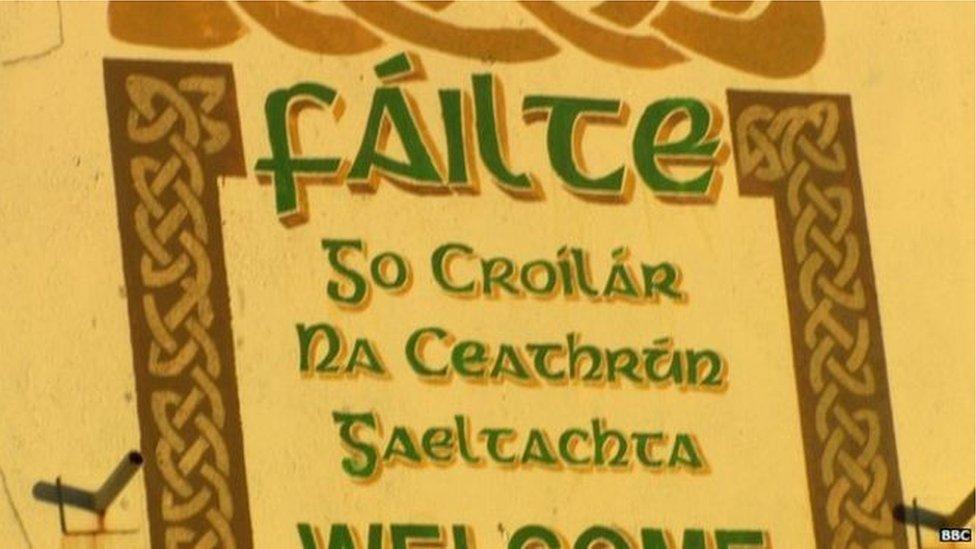Irish language act 'would initially cost £8.5m'
- Published
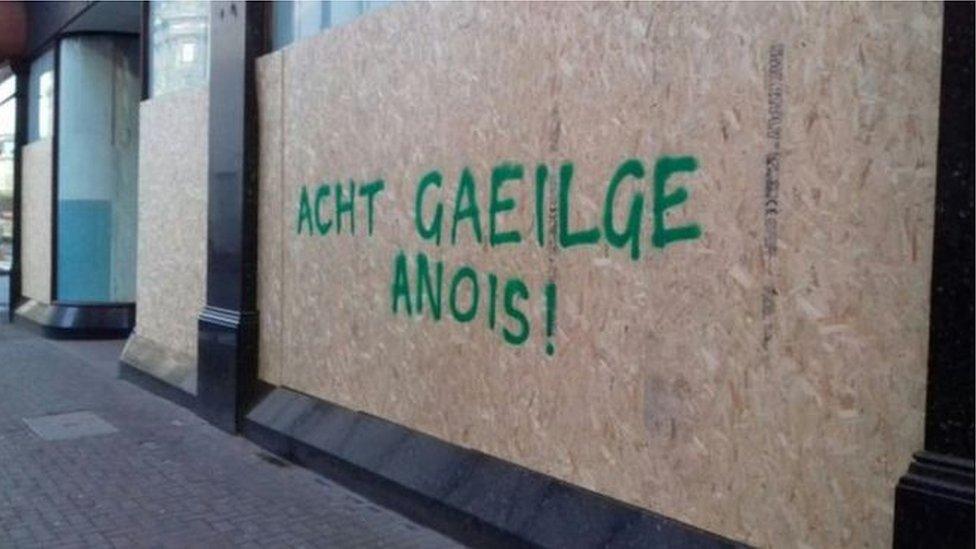
An Irish language act was a key campaigning issue ahead of March's Assembly election
Introducing an Irish language act would cost an initial £8.5m, according to an Irish language group.
Conradh na Gaeilge (CnG) has produced an implementation document detailing what an act would entail.
It estimates that such an act would cost £2m a year to run, in addition to the £8.5m one-off cost.
The group said the intention would be to make implementation of an act "as practical and workable as possible".
The document, which has been seen by the BBC, states that an act should gradually be introduced over a five-year period.
It proposes 11 different sections as part of an act covering elements such as use of Irish:
In the Northern Ireland Assembly
By local government and public bodies
In the courts
The document estimates that it would cost £100,000 to establish a central translation department at Stormont.
A further £50,000 would be spent installing a simultaneous translation system in the assembly.
CnG has estimated it would then cost £500,000 a year to run the translation department, including the cost of employing 10 staff.
Among other estimated costs, £372,000 per year would be spent training workers in public bodies to speak Irish.
About £750,000 - £1m would initially be spent translating public websites, forms and documents.
A further £1.5m a year would be used to enable bilingual road signs to be provided.
'Reasonable cost'
The document also recommends that a language commissioner is appointed to ensure the act is being complied with.
It says a commissioner's office would cost between £300,000 and £400,000 per year.
"It is a very reasonable cost, especially if the act is implemented properly and willingly," says CnG.
The document also calls for the BBC to spend £10m on Irish language services.
This would ensure that there would be more Irish language included among the services of the BBC and that costs for this would come from the current budget of the BBC," it states.
"The majority of parties and recently elected MLAs support an Irish language act."
"We now have a unique and historical opportunity to settle this long-running issue."
A consultation document on an act produced by the Department for Culture, Arts and Leisure (DCAL) in February 2015 did not estimate how much it might cost to implement.
Sinn Féin and the DUP have subsequently disagreed over the cost of Irish language legislation.
DUP leader Arlene Foster has previously said the party would never agree to an Irish language act.
Dr Niall Comer, President of Conradh na Gaeilge, said they wanted to inform people of what an act involved.
"Already, five parties alongside a majority 50 of the 90 newly-elected MLAs support protective legislation for the Irish-language in the form of an act, " he said.
"We are calling on the parties now to come together and support these proposals, and to implement Irish language legislation, as recently recommended by both the Council of Europe and the United Nations, and as was promised over ten years ago in the St Andrew's Agreement."
- Published9 March 2017
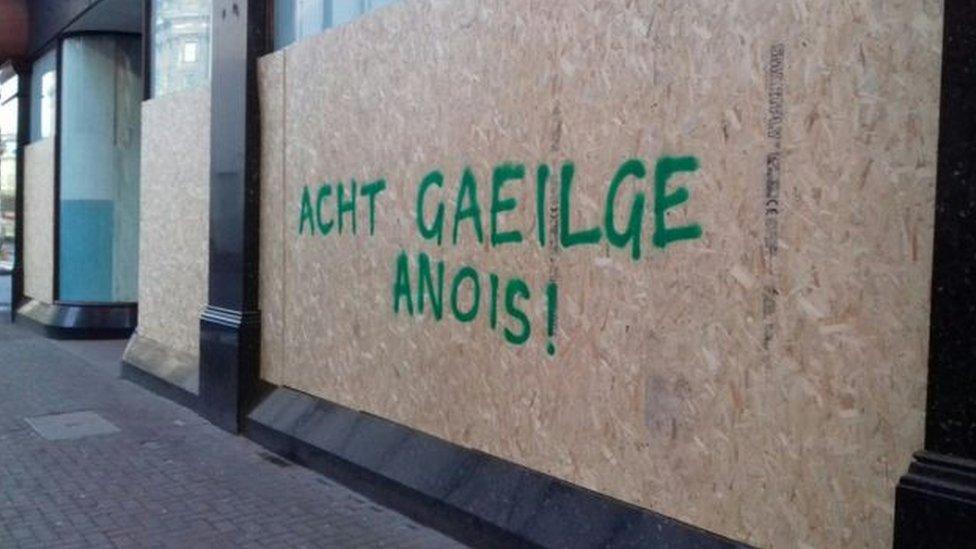
- Published3 March 2017
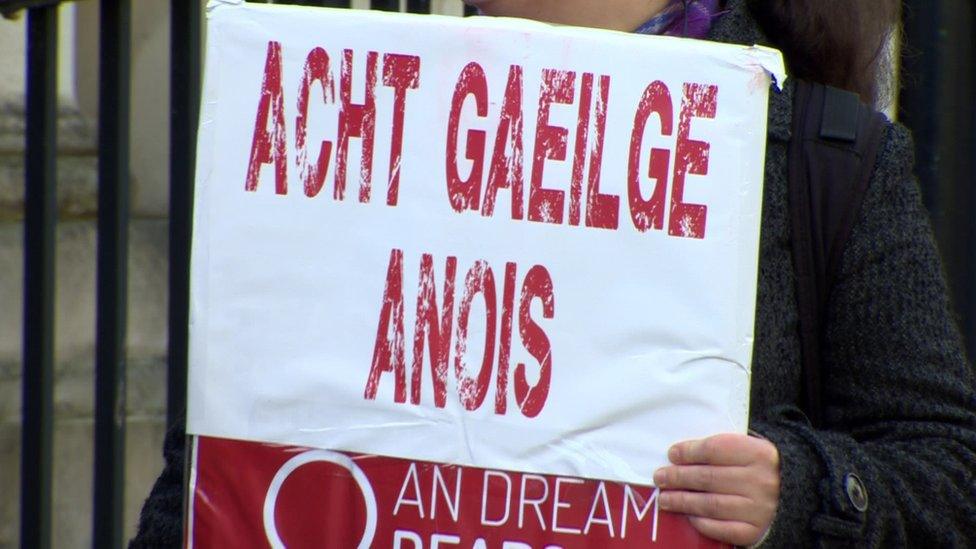
- Published12 January 2017
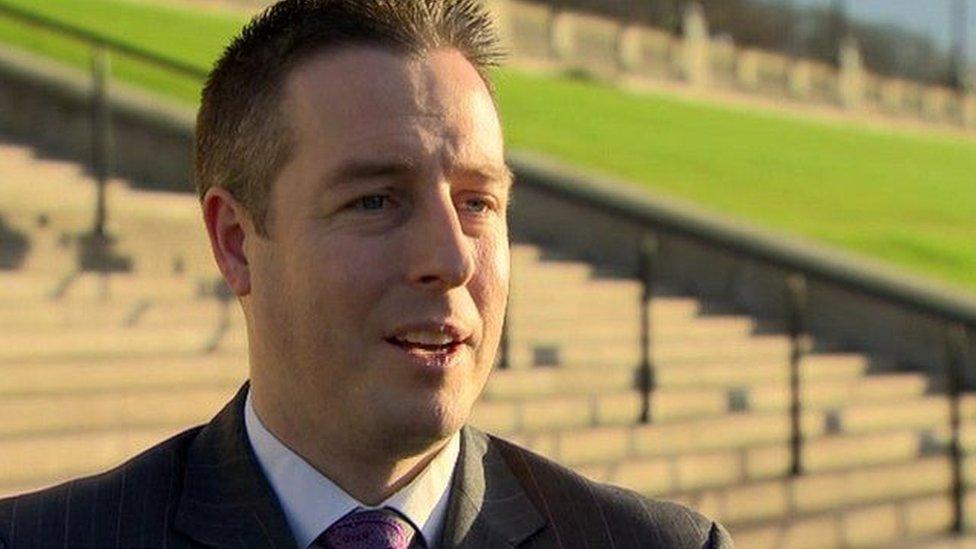
- Published4 April 2016
